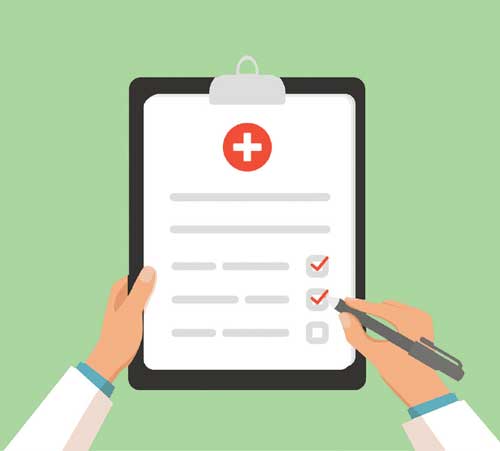
by Ann L. McNary, JD
Ms. McNary is a Senior Risk Manager at Professional Risk Management Services (PRMS).
Funding: No funding was provided for the preparation of this article.
Disclosures: The author is an employee of PRMS. PRMS manages a professional liability insurance program for psychiatrists.
Innov Clin Neurosci. 2023;20(1–3):76–77.
This ongoing column is dedicated to providing information to our readers on managing legal risks associated with medical practice. We invite questions from our readers. The answers are provided by PRMS (www.prms.com), a manager of medical professional liability insurance programs with services that include risk management consultation and other resources offered to health care providers to help improve patient outcomes and reduce professional liability risk. The answers published in this column represent those of only one risk management consulting company. Other risk management consulting companies or insurance carriers might provide different advice, and readers should take this into consideration. The information in this column does not constitute legal advice. For legal advice, contact your personal attorney. Note: The information and recommendations in this article are applicable to physicians and other health care professionals so “clinician” is used to indicate all treatment team members.
Question
This summer, I’m taking my family on a long overdue vacation to Italy. Frankly the last three years have been exhausting and we all need a change of scenery. Although I have typically just continued handling my own calls when I’ve been away from my practice, this time I feel like I need a real break. The last thing I want though is for this to upset my patients or put me or my covering provider at risk. What steps can I take to ensure that my vacation doesn’t create a lot of headaches for myself and others?
Answer
It has been a long three years, and good for you for deciding to take some time for yourself. With spring upon us and summer just around the corner, I imagine a lot of other providers will be thinking about taking some time away from their practices. Professional organizations are again meeting in person, travel is normalizing, and the dollar is strong abroad. Whether a break means taking a long vacation to another country, heading to a conference to meet with colleagues, or holing up by yourself in a cabin in the woods, there are a few things you should do to make sure things go as smoothly as possible in your absence.
- Make certain your staff and covering providers have accurate telephone numbers and other contact information.
- Discuss with staff situations in which you absolutely want to be contacted, which may include problems with specific patients. Remember, your staff knows how hard you work and may be very reluctant to contact you on your vacation. Issues may come up that are unrelated to treatment, and thus not appropriate to refer to a covering provider, so clear guidance (preferably in writing) will take the burden off of them and ensure that you receive needed information.
- Make covering providers aware of those patients about whom you have particular concerns. Also, discuss with them those situations in which you would want to be consulted.
- Get caught up on dictation (or electronic health record [EHR] entry) and sign off on all transcription. If there are patients who you suspect will need care in your absence, review their individual charts to ensure that someone stepping into your shoes will have the necessary information to maintain continuity of care. Remember, your colleague will not have the benefit of an already established relationship with your patient and may have to gain their trust. Do not put your colleague in the position of looking unsure or inept by leaving behind inadequate records.
- If you are seeing patients in a split treatment relationship, make other providers with whom you share patients aware of your upcoming absence and your coverage arrangements. This is particularly true for any patients who are high risk.
- Consider the location of your patients. Many providers have obtained licensure or certification in other states during the pandemic to allow them to treat patients remotely. Providers covering you for these remote patients should also have licensure/certification in these locations.
- If any of your patients are currently hospitalized, make certain the hospital knows of your absence and your plans for coverage. As necessary, also prepare these patients for your absence.
- If you are responsible for the supervision of a nonphysician provider (NPP), such as a nurse practitioner or physician assistant, determine who will act as the supervising physician in your absence and whether it is necessary to convey this information to the NPP’s licensing board.
- Remind staff that the same rules regarding confidentiality and the release of information hold true in your absence. Make certain they have the number of the risk management department of your malpractice carrier, should a question arise involving the release of information to which they do not know the answer.
- If it is necessary for you to communicate with staff and/or covering providers, be attentive to potential breaches of confidentiality when using mobile phones, laptops/computers, faxes, voicemail, etc. All the requirements to protect and secure confidential patient information must be maintained, even though you are away from your usual environment and routine.
- Maintain documentation of all calls to and from a patient and to and from a third party concerning a patient. If you use a paper chart, a form the size of an index card with an adhesive backing that easily fits into a pocket or purse can be used to document calls received outside of the office and can readily be filed in the medical record upon your return to the office.
- Always lock up prescription pads (if you still use them).
- Try to anticipate medication refills and determine which of those will require ongoing monitoring during your absence.
- Think about the best way to manage patients during your absence. If you will be gone for a finite amount of time and this is not likely to change, then asking a colleague to cover should be fine. If, however, your absence is due to your decision to take a leave of absence for several months or is due to a medical condition and your return date is uncertain, you might want to think about finding a locum tenens.
When Covering for a Colleague
Generally speaking, covering for a colleague is a low-risk activity. Here are some suggestions for keeping it that way:
- Spend some time with your colleague to learn more about those patients who might require continued assistance during your colleague’s absence—particularly those who may be high risk.
- Ask if there are particular patients or particular situations about which they would want to be made aware, and make sure you have all of their contact information.
- Understand your colleague’s specific patient population (e.g., children and adolescents, patients with eating disorders, etc.), and determine whether you feel you are able to manage these patients in their absence.
- Ask your colleague about the medications they routinely prescribe to determine whether you are comfortable covering these patients (e.g., patients on buprenorphine or combinations of opiates and benzodiazepines).
- Confirm that your colleague has—to the extent feasible—made patients aware of their upcoming absence.
- Ask about other providers involved in treatment, such as therapists, who may be called upon to assist if necessary, and obtain their contact information.
- Before your colleague leaves, find out whether you can gain access to pertinent medical information should the need arise and how to go about doing so.
- Even if you have not had an in-person visit with a patient, you are permitted to refill a controlled substance, so long as you are doing so while covering for a colleague. You should still check the Prescription Monitoring Program (PMP) as you would when prescribing for your own patients. Consider only prescribing for the amount needed to last until your colleague returns rather than a full 30 days, assuming they will return sooner.
- Know exactly when you are covering and to which institutions your colleague refers patients for hospitalization/in-patient care. Do you have privileges there?
- Determine whether you will be expected to act in the role of supervising physician for NPPs supervised by your colleague. What obligations must you fulfill? Will this require notification to the NPP’s board? Will this be covered under your malpractice policy?
- If your colleague’s practice includes managed care patients, will you be paid for covering these patients in their absence?
- If your colleague will be away for an extended period (more than two weeks), find out who is expected to handle correspondence and nonmedical requests if they do not have staff to manage these.
- As a patient you are seeing in a colleague’s absence is not your own patient, it is not necessary to have them complete your office forms or set up a chart for them. You should, however, keep notes of your interactions with or about these patients and maintain them in a separate administrative file. Send copies to your colleague when they return.
With a bit of advanced planning and clear communication, you can ensure that your time away from your office is pleasurable, rather than problematic.





